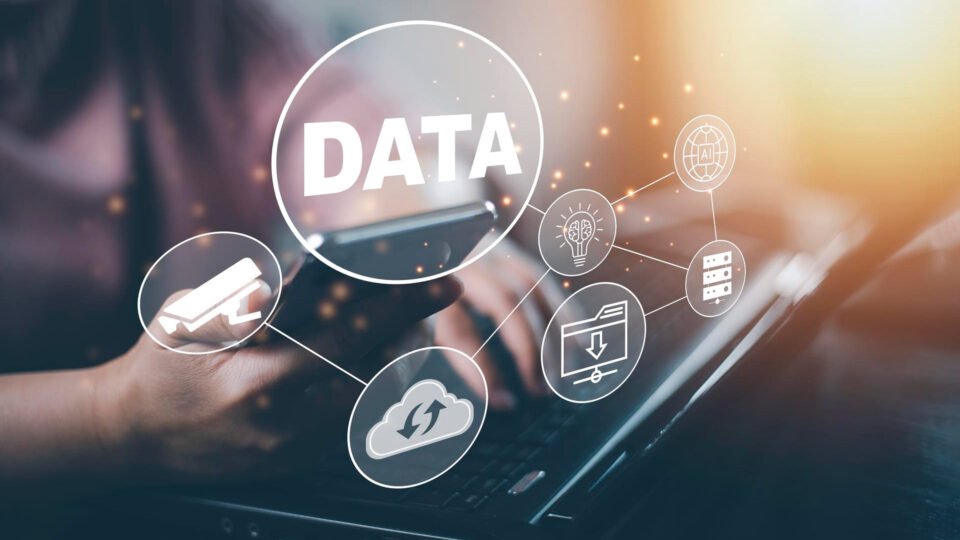Elevate your data game by mastering data quality and lineage for unmatched trust and reliability.
Table of Contents1. The Importance of Data Quality
1.1 Accuracy
1.2 Completeness
1.3 Consistency
1.4 Timeliness
2. The Role of Data Lineage in Trust and Reliability
2.1 Traceability
2.2 Transparency
2.3 Compliance
2.4 Risk Management
3. Integrating Data Quality and Data Lineage for Enhanced Trust
3.1 Implement Data Quality Controls
3.2 Leverage Data Lineage Tools
3.3 Foster a Data-Driven Culture
3.4 Continuous Improvement
4. Parting Words
As organizations continue doubling their reliance on data, the question of having credible data becomes more and more important. However, with the increase in volume and variety of the data, high quality and keeping track of where the data is coming from and how it is being transformed become essential for building credibility with the data. This blog is about data quality and data lineage and how both concepts contribute to the creation of a rock-solid foundation of trust and reliability in any organization.
1. The Importance of Data Quality
Assurance of data quality is the foundation of any data-oriented approach. Advanced information’reflects realities of the environment accurately, comprehensively, and without contradiction and delays.’ It makes it possible for decisions that are made on the basis of this data to be accurate and reliable. However, the use of inaccurate data leads to mistakes, unwise decisions to be made, and also demoralization of stakeholders.
1.1 Accuracy:
Accuracy, as pertains to data definition, means the extent to which the data measured is actually representative of the entities that it describes or the conditions it quantifies. Accuracy in numbers reduces the margin of error in the results of analysis and conclusions made.
1.2 Completeness:
Accurate data provides all important information requisite in order to arrive at the right decisions. Missing information can leave one uninformed, thus leading to the wrong conclusions.
1.3 Consistency:
It makes data consistent within the different systems and databases within an organization. Conflicting information is always confusing and may not allow an accurate assessment of a given situation to be made.
1.4 Timeliness:
Data is real-time; hence, decisions made reflect on the current position of the firm and the changes that are occurring within it.
2. The Role of Data Lineage in Trust and Reliability
Although data quality is a significant aspect, data provenance, data lineage, and data destination are equally significant factors. This is where data lineage comes into play. Data lineage, therefore, ensures that one knows the lineage of the data, the point of origination, how it evolved, and the pathways it has been through. Data lineage gives a distinct chain of how a piece of data comes through an organization right through to its utilization.
2.1 Traceability:
Data lineage gives organizations the ability to trace data to its original source. Such traceability is crucial for verifying the correctness as well as accuracy of the data collected.
2.2 Transparency:
As a result, one of the most important advantages of using data lineage is better transparency within the company. The company ensures that the stakeholders have an insight into how the data has been analyzed and transformed, which is important in building confidence in the data.
2.3 Compliance:
Most industries are under the pressure of strict data regulations. Data lineage makes compliance easy for an organization in that there is accountability for data movement and changes, especially when an audit is being conducted.
2.4 Risk Management:
Data lineage also means beneficial for defining the risks for the data processing pipeline. It is only by becoming familiar with the data’s flow that an organization can easily identify any issues, such as errors or inconsistencies, before arriving at the wrong conclusion based on the wrong data.
3. Integrating Data Quality and Data Lineage for Enhanced Trust
Data quality and data lineage are related and have to be addressed together as part of a complete data management framework. Here’s how organizations can achieve this:
3.1 Implement Data Quality Controls:
Set up certain policies in the process of data management at each phase of the process. Conduct daily, weekly, monthly, and as needed check-ups and data clean-ups to check if the data is of the needed quality.
3.2 Leverage Data Lineage Tools:
Ensure that software selection for data lineage gives a graphical representation of the flow of data. These tools are quite useful for monitoring data quality problems and the potential effects of such changes on the data.
3.3 Foster a Data-Driven Culture:
Promote use of data within the organization, which would ensure that high importance is placed on the quality and origin of such data. Also, explain to the employees the relevance of these ideas and the part they play in the success of any business.
3.4 Continuous Improvement:
Data quality and lineage are not just activities that are done once but are rather cyclical. Ensure that the quality of data management is consistent with an ongoing process of active monitoring of new developments in the business environment and new trends and possibilities offered by technology.
4. Parting Words
When data is being treated as an important company asset, it becomes crucial to maintain the quality of the data and to know its origin in order to build its credibility. Companies that follow data quality and lineage will be in a better position to take the right decisions, follow the rules and regulations set for them, and be in a better position compared to their competitors. If adopted in their data management process, these practices can help organizations realize the full value of their data, encompassing certainty and dependability central to organizational success.
Explore AITechPark for top AI, IoT, Cybersecurity advancements, And amplify your reach through guest posts and link collaboration.

